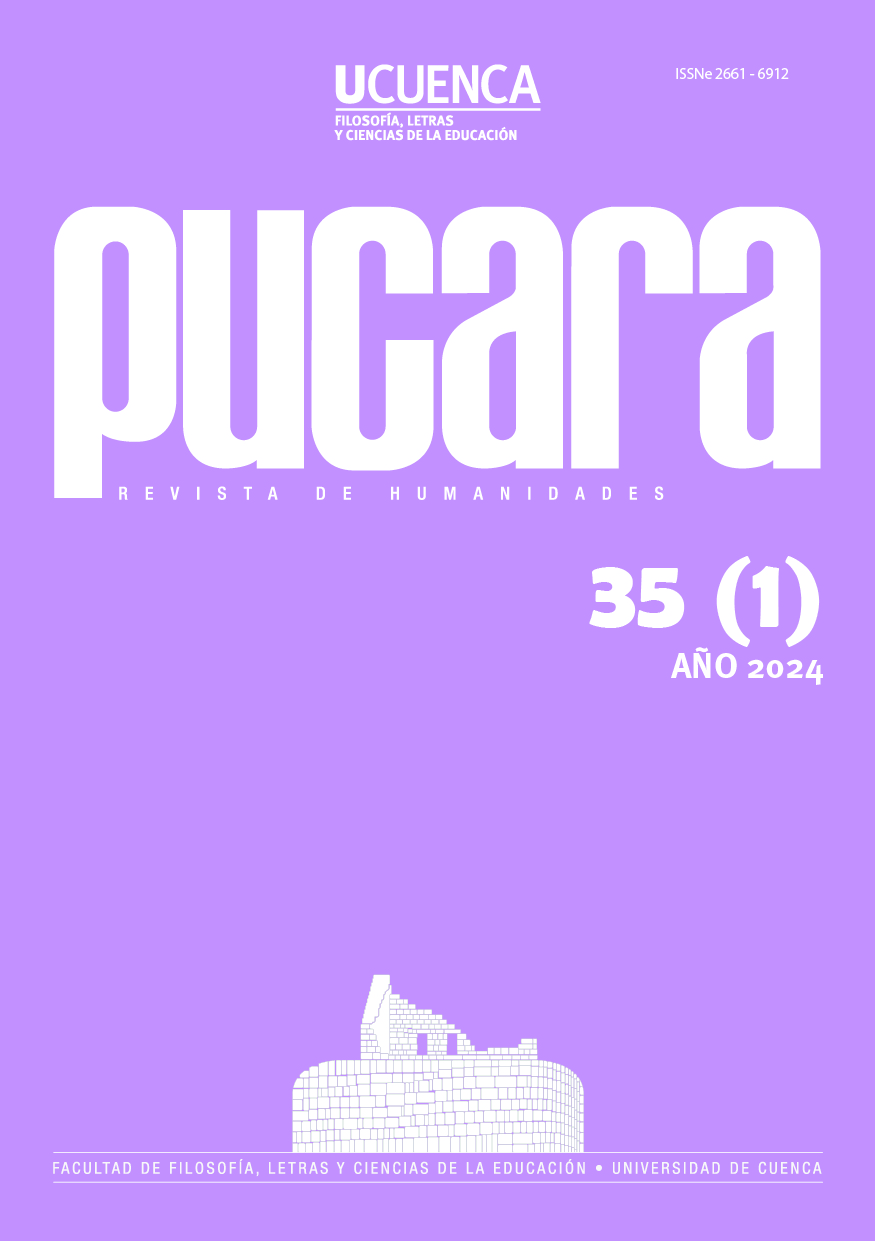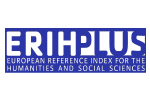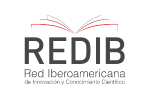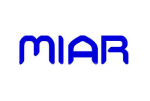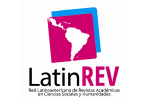Conceptions about writing in graduates of three disciplinary fields in education
DOI:
https://doi.org/10.18537/puc.35.01.05Keywords:
Academic writing, implicit theories, students’ conceptions, initial teachers’ trainingAbstract
In their degree work, students reflect their experience with school writing practices that have shaped implicit theories about the process and social value of writing, which can be seen as a mere requirement or as a tool for knowledge. To identify the conceptions of Mexican Education students with different professional profiles, a Likert scale survey was applied to 90 teachers in training in Pre-School Education, Physical Education, Spanish and English. Most of them hold reproductive and processual conceptions of writing, which do not consider the importance of its epistemic potential, its transformative power of thought as a learning tool, as well as the interactive nature of the text (the dialogic author-reader relationship). Future teachers assimilate practices anchored to the grammatical norm, the idea of the monological and linear text produced by accumulation of ideas, without planning or revision.Downloads
References
Álvarez Álvarez, M. D. L. N., Villardón Gallego, L. y Yániz Álvarez de Eulate, C. (2010). Influencias de factores sociocognitivos en la calidad
de la escritura en los estudiantes universitarios. Educatio Siglo XXI, 28(2), 181-204. https://revistas.um.es/educatio/article/view/112021
Arango López, C. A., Buitrago Correa, N. M., Mesa Sánchez, M. E., Zapata Zapata, Y. S., Castaño Orozco, D. P. y Hernández Zapata, C. A.
(2010). La reflexión metacognitiva asociada al aprendizaje de la escritura en estudiantes de preescolar y primero de básica primaria con diferentes ritmos de aprendizaje. [Tesis de grado, Universidad de Antioquia]. Repositorio Institucional Universidad de Antioquia.
https://hdl.handle.net/10495/22335
Bandura, A. (1997). Self-Efficacy. The Exercise of Control. W. H. Freeman and Company. Becker, A. (2006). A Review of Writing Model Research Based on Cognitive Processes. In A. Horning y A. Becker (Eds.). Revision. History, Theory, and Practice (pp. 25-49). Parlor Press/The WAC Clearinghouse.
Bereiter, M. y Scardamalia, C. (1987). The psychology of written composition. Erlbaum.
Berkenkotter, C., Huckin, T. y Ackerman, J. (1989). Social Context and Socially Constructed Texts: The Initiation of a Graduate Student into a Writing Research Community. Technical Report no 33. National Center for the Study of Writing, University of California at Berkeley y Carnegie Mellon University https://files.eric.ed.gov/fulltext/ED313700.pdf
Carlino, P. (2004). El proceso de la escritura académica. Cuatro dificultades de la enseñanza universitaria. Educere, Revista Venezolana de Educación, 8(26), 321-327. https://www.aacademica.org/paula.carlino/104
Carlino, P. (2006). La escritura en la investigación. Documento de trabajo. Universidad de San Andrés. https://n2t.net/ark:/13683/p1s1/Szn
Carlino, P. (2012). Escribir, leer y aprender en la universidad: una introducción a la alfabetización académica. Fondo de Cultura
Económica.
Cordero Villarreal, D. A. y Sánchez Fernández, C. C. (2018). Los círculos de la lectura, escritura y argumentación en la escuela. [Tesis de grado, Universidad Distrital Francisco José de Caldas]. http://hdl.handle.net/11349/12938
DiFabio de Anglat, H. (2012). Hacia un inventario de escritura académica en el posgrado. Revista de Orientación Educacional, 49(26), 37-53. https://dialnet.unirioja.es/servlet/articulo?codigo=4554495
Errázuriz, M. C. (2017). Teorías implícitas sobre la escritura académica en estudiantes de programas de formación inicial docente: ¿inciden en el desempeño escrito? Signo y Pensamiento, 36(71), 34-50. doi: 10.11144/Javeriana.syp36-71.tiea
Fayol, M. (1991) La production d’écrits et la psychologie cognitive. Le français aujourd’hui, 93, 21-24. https://www.persee.fr/doc/reper_1157-1330_1991_num_4_1_2043_t1_0194_0000_2
Fidalgo, R. y García, J. N. (2008). El desarrollo de la competencia escrita a través de una enseñanza metacognitiva de la escritura. Cultura y Educación, 20(3), 325-346. https://doi.org/10.1174/113564008785826321
Flower, L.S. (1987). The Role of Task Representation in Reading-to-Write. Reading-to-Write: Exploring a Cognitive and Social Process Series, Report 2. https://www.semanticscholar.org/paper/The-Role-of-TaskRepresentation-in-Exploring-aandFlower/cfd2b5457f411ae7cd13285fff8f1e12e31ec31c
Flower, L.S. (1990). Negotiating Academic Discourse. Technical Report no 29. National Center for the Study of Writing, University of California at Berkeley y Carnegie Mellon University. https://lead.nwp.org/wpcontent/uploads/2017/10/TR29.pdf
Flower, L. y Hayes, J. (1981). A cognitive process theory of writing. College Composition and Communication, 32(4), 365-387.
https://www.jstor.org/stable/356600
Flower, L., Hayes, J. R., Carey, L., Schriver, K., y Stratman, J. (1986). Detection, Diagnosis, and the Strategies of Revision. College
Composition and Communication, 37, 16-55. https://www.jstor.org/stable/357381
Flower, L. S. y Higgings, L. (1991). Collaboration and the Construction of Meaning. Technical Report no 56. National Center for the Study of Writing, University of California at Berkeley y Carnegie Mellon University. https://files.eric.ed.gov/fulltext/ED341069.pdf
García Sánchez, J. N. y Fidalgo Redondo, R. (2004). El papel del autoconocimiento de los procesos psicológicos de la escritura en la
calidad de las composiciones escritas. Revista de Psicología General y Aplicada, 57(3), 281-297. https://www.semanticscholar.org/paper/Elpapel-del-autoconocimiento-de-los-procesos-de-la-SánchezRedondo/a7ff8a47e101c2e568a138b68569f0c8b1170d95
Guerrero, H. I. y Chois Lenis, P. M. (2019). Prácticas de escritura en posgrado: el caso de una maestría en educación. Lenguaje, 47(1), 120- 146. https://doi.org/10.25100/lenguaje.v47i1.6094
Hernández, G. (2012). Teorías implícitas de escritura en estudiantes pertenecientes a dos comunidades académicas distintas. Perfiles
Educativos, 24(136), 42-62. https://doi.org/10.22201/iisue.24486167e.2012.136.31762
Herranz Herranz, L. (2021). La escritura académica en los Trabajos de Fin de Grado de maestro: investigación sobre el proceso y análisis de producciones [Tesis de Máster, Universidad de Valladolid. Facultad de Educación de Segovia]. https://uvadoc.uva.es/handle/10324/47280
Horning, A., y Robertson, J. (2006). Basic Writers and Revision. In A. Horning y A. Becker (Eds.). Revision. History, Theory, and Practice
(pp. 50-62). Parlor Press/The WAC Clearinghouse.
Lea, M. (1999). Academic Literacies and Learning in Higher Education. Constructing knowledge through texts and experience. En C. Jones, J. Turner y B. Street (Coords.). Students writing in the university. Cultural and epistemological issues (pp. 103-124). John Benjamins Publishing Co.
Molina Gutiérrez, T. J., Quintero Arjona, G., Aracelys López y Burbano García, L. H. (2018). Trabajo de Grado y competencias de escritura. Estudios de Posgrado. Revista UNIANDES Episteme, 5(extra 1), 1043- 1057. https://dialnet.unirioja.es/servlet/articulo?codigo=8297960
Molina Gutiérrez, T. J., Lizcano Chapeta, C. J., y Burbano García, L. H. (2021). Aula virtual: estrategia para desarrollar competencias
comunicativas en la escritura del trabajo de titulación. Revista Conrado, 17(S3), 95-103. https://conrado.ucf.edu.cu/index.php/conrado/article/download/2143/2088/
Molina-Natera, V. (2019). El discurso pedagógico en las tutorías de escritura. Revista Mexicana de Investigación Educativa, 24, (80), 125-148. https://www.redalyc.org/articulo.oa?id=14060241006
Pacheco, D.I., García, J.N., y Díez, C.H. (2009). Autoeficacia, enfoque y papel de la práctica de los maestros en la enseñanza de la
escritura. European Journal of Education and Psychology, 2, 5-23. https://doi.org/10.30552/ejep.v2i1.17
Piolat, A. y Roussey, J-Y. (1992). Rédactions de textes. Éléments de Psychologie Cognitive. Langages, 106, 106-124.
Rodríguez Hernández, B. A. y Leal Vera, R. A. (2017). La escritura académica en los posgrados profesionalizantes para maestros de educación básica. Revista de Investigación Educativa, 24, 224-239. https://cpue.uv.mx/index.php/cpue/article/view/2410
SEP (2018). Planes de Estudio 2018. Licenciaturas en Educación. Secretaría de Educación Pública. https://dgesum.sep.gob.mx/planes2018
SEP (2022). Planes de Estudio 2022. Licenciaturas en Educación. Secretaría de Educación Pública. https://dgesum.sep.gob.mx/planes2022
Sommers, N. (1982). Responding to Student Writing. College Composition and Communication, 33(2), 148-156. https://www.jstor.org/stable/357622
Vargas Franco, A. (2016). La escritura académica en el posgrado: la perspectiva del estudiante. Un estudio de caso. Revista de Docencia
Universitaria REDU, 14(1), 97-129. https://doi.org/10.4995/redu.2016.5807
Villalón Molina, R. (2010). Las concepciones de los estudiantes sobre la escritura académica [Tesis doctoral, Universidad Autónoma de
Madrid]. Biblos-e Archivo Repositorio. http://hdl.handle.net/10486/4865
Zimmerman, B., J., Bandura, A., y Martinez-Pons, M. (1992). Self-Motivation for Academic Attainment: The Role of Self-Efficacy Beliefs and Personal Goal Setting. American Educational Research Journal, 29(3), 663-676. https://doi.org/10.3102/0002831202900366
Zimmerman, B., J., Bandura, A. (1994). Impact of Self-Regulatory Influences on Writing Course Attainment. American Educational Research Journal, 31(4), 845-862. https://doi.org/10.3102/000283120310048
Published
How to Cite
Issue
Section
License
Copyright (c) 2024 Eva Margarita Godínez López, Marco Antonio Rivera Treviño

This work is licensed under a Creative Commons Attribution-NonCommercial-ShareAlike 4.0 International License.
Copyright © Autors.

You are free to:
 |
Share — copy and redistribute the material in any medium or format |
 |
Adapt — remix, transform, and build upon the material for any purpose, even commercially. |
Under the following conditions:
 |
Attribution — You must give appropriate credit, provide a link to the licence, and indicate if changes were made. You may do so in any reasonable manner, but not in any way that suggests the licenser endorses you or your use. |
| NonCommercial — You may not use the material for commercial purposes. | |
| ShareAlike — If you remix, transform, or build upon the material, you must distribute your contributions under the same license as the original. |
| No additional restrictions — You may not apply legal terms or technological measures that legally restrict others from doing anything the licence permits. |

